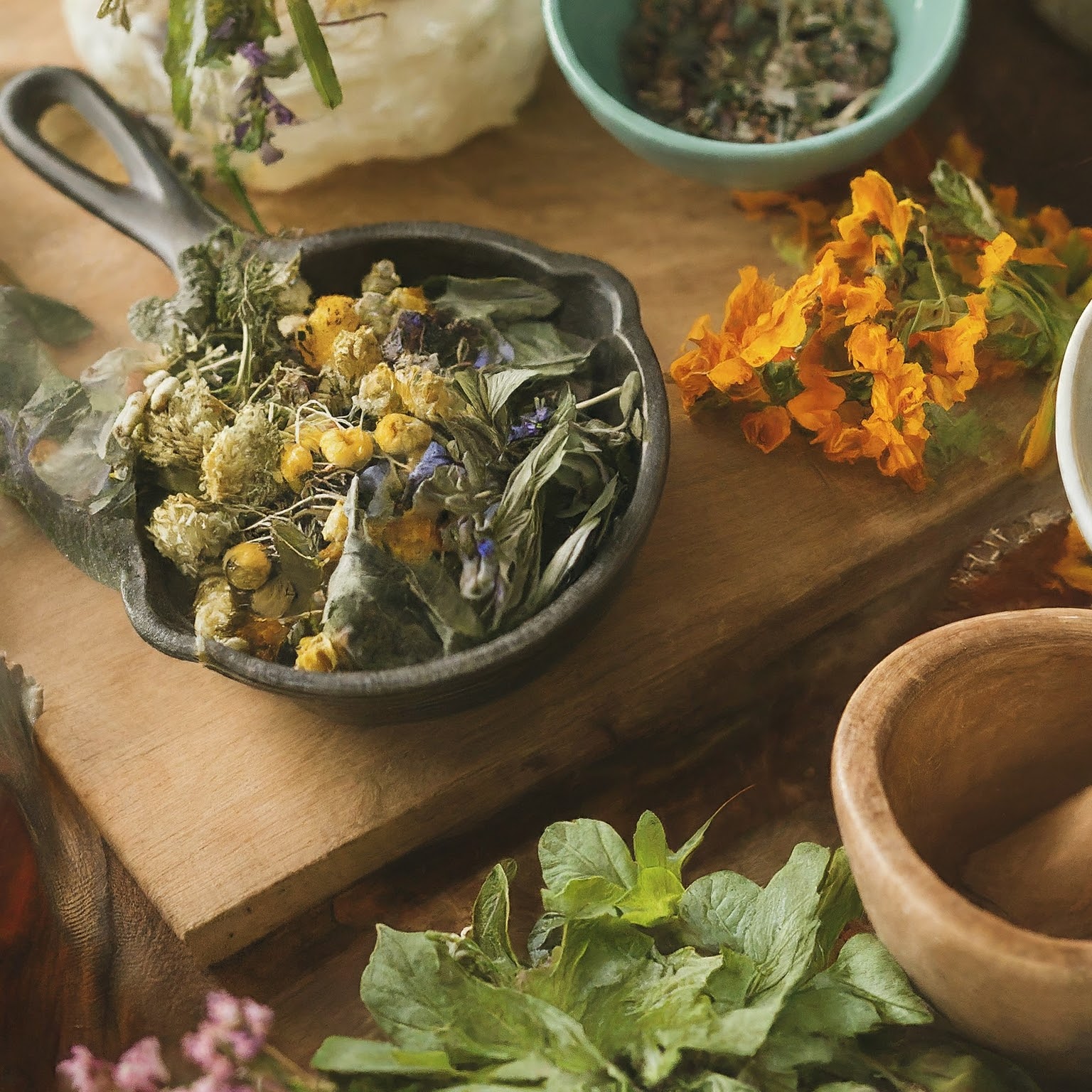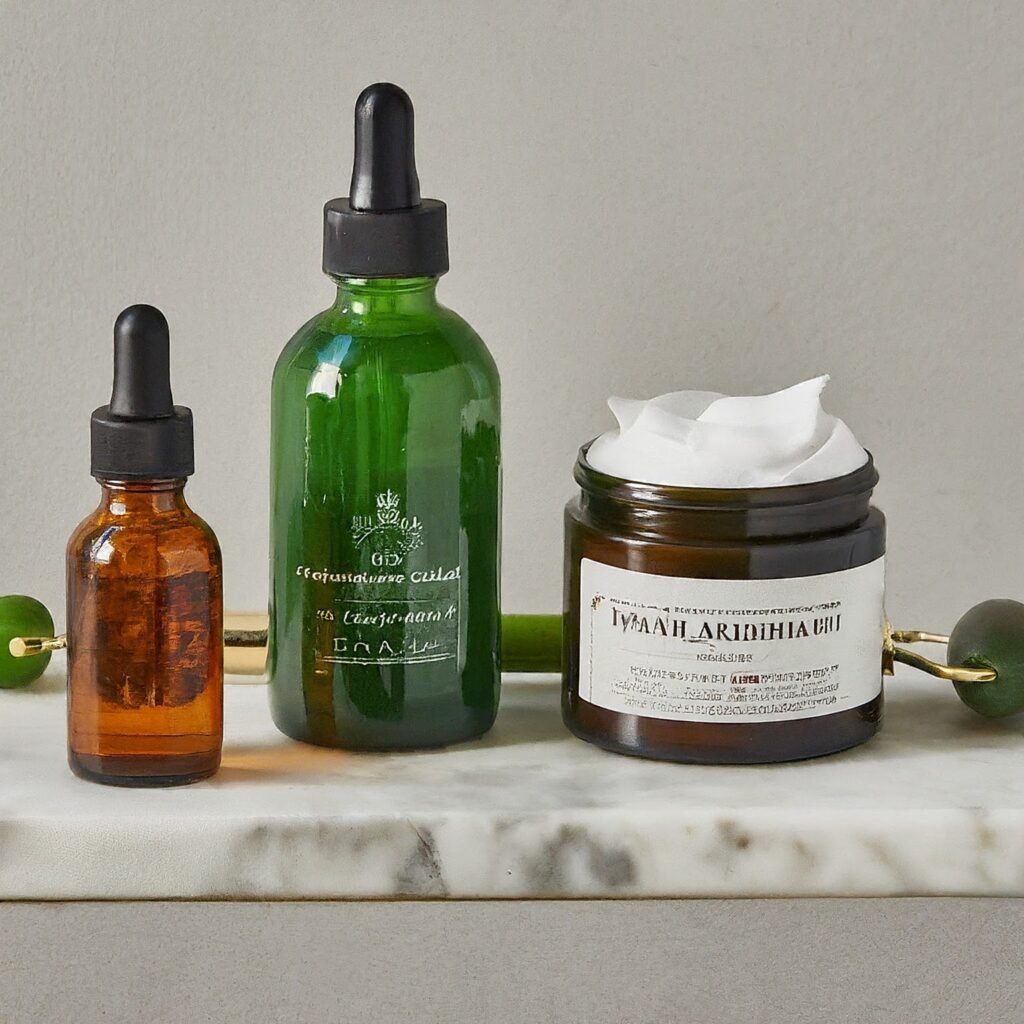Top 10 Herbal Remedies for Stress Relief

In today’s fast-paced world, stress has become a common issue for many people. Fortunately, there are natural remedies that can help alleviate stress and promote relaxation. In this article, we will explore the top 10 herbal remedies that are known for their stress-relieving properties. From soothing teas to calming essential oils, these natural remedies can provide relief from the pressures of daily life.
Table of Contents
Table of Contents
10 Herbal Remedies for Stress Relief
In a world filled with hustle and bustle, stress has become a common companion for many. While there are various methods to tackle stress, herbal remedies offer a natural and holistic approach. Here’s a comprehensive guide to the top 10 herbal stress relievers:
- Chamomile: A Soothing Cup of Tea
- The Calming Power of Chamomile
- How to Brew the Perfect Cup
- Integrating Chamomile into Your Daily Routine
- Lavender: A Fragrant Stress Reliever
- Lavender’s Relaxing Aroma
- Methods of Using Lavender for Stress Relief (Essential oils, teas, sachets)
- Creating a Lavender Sanctuary at Home
- Ashwagandha: Ancient Adaptogen for Modern Stress
- Understanding Ashwagandha’s Adaptogenic Properties
- Incorporating Ashwagandha into Your Wellness Routine
- Dosage and Considerations for Safe Use
- Valerian Root: Nature’s Sedative
- The Relaxing Effects of Valerian Root
- Making Valerian Root Infusions and Tinctures
- Valerian Root and Sleep: Enhancing Relaxation
- Passionflower: Calming Nerves Naturally
- Passionflower’s Anxiety-Reducing Benefits
- Passionflower Tea Recipes and Blends
- Combining Passionflower with Other Herbs for Enhanced Effectiveness
- Rhodiola: Energize and Destress
- Rhodiola’s Dual Role in Stress Relief and Energy Enhancement
- Proper Dosage and Timing for Stress Management
- Potential Side Effects and Interactions to Be Aware Of
- Holy Basil (Tulsi): Sacred Herb for Stress Reduction
- The Spiritual and Therapeutic Significance of Holy Basil
- Holy Basil Tea Recipes and Infusions
- Cultivating Holy Basil for Personal Use
- Lemon Balm: Uplifting and Calming
- Lemon Balm’s Mood-Enhancing Properties
- Lemon Balm Infusions and Extracts
- Lemon Balm in Culinary Delights: Recipes for Stress Relief
- Ginseng: Boosting Resilience Against Stress
- Ginseng’s Adaptogenic Abilities
- Selecting the Right Type of Ginseng
- Incorporating Ginseng into Your Daily Health Routine
- Kava Kava: Pacific Island Relaxation
- Exploring Kava Kava’s Traditional Uses
- Kava Kava Preparation and Consumption Methods
- Safety Considerations and Potential Risks
Each of these herbal remedies offers unique benefits for stress relief. By incorporating them into your daily routine, you can nurture a sense of calm and well-being naturally.
Incorporating Herbal Remedies into Your Daily Routine
Integrating herbal remedies into your daily routine can significantly contribute to managing stress and promoting overall well-being. Here’s how you can seamlessly incorporate these natural remedies into your everyday life:
- Morning Rituals: Start your day with a calming cup of herbal tea such as chamomile or lemon balm. This sets a peaceful tone for the day ahead.
- Midday Pick-Me-Up: Keep a bottle of lavender essential oil at your desk or in your bag. A quick inhale or dab on the wrists can provide instant relaxation during stressful moments.
- Afternoon Relaxation: Take a break in the afternoon to sip on a cup of passionflower or holy basil tea. Pair it with a few minutes of deep breathing or meditation for enhanced relaxation.
- Evening Wind-Down: Incorporate ashwagandha or valerian root into your evening routine to unwind and prepare for restful sleep. Consider herbal supplements or tinctures for convenient consumption.
- Bedtime Rituals: Create a soothing bedtime routine by diffusing calming essential oils like lavender or bergamot in your bedroom. Practice relaxation techniques such as gentle stretches or progressive muscle relaxation before bedtime.
- Daily Supplementation: Incorporate adaptogenic herbs like rhodiola or ginseng into your daily supplement regimen. Consult with a healthcare professional to determine the appropriate dosage and frequency for your needs.
- Culinary Delights: Experiment with incorporating stress-relieving herbs into your cooking and baking. Add fresh herbs like basil or thyme to savory dishes, or infuse desserts with calming flavors like lavender or chamomile.
Relaxing Herbal Teas
1. Lemon Balm Tea
Lemon balm tea is known for its calming properties and ability to reduce stress and anxiety. It contains compounds that help relax the mind and body, making it a popular choice for those seeking natural stress relief. Lemon balm tea can be enjoyed hot or cold and is easily accessible at health food stores or can be made at home using fresh lemon balm leaves.
2. Peppermint Tea
Peppermint tea is another herbal remedy that is great for stress relief. The menthol in peppermint helps to relax muscles and ease tension, while the aroma can have a calming effect on the mind. Peppermint tea is also known for its digestive benefits, which can be helpful during times of stress when the digestive system may be affected. Enjoy a cup of peppermint tea before bed or during a stressful day to help promote relaxation and reduce stress levels.
Adaptogenic Herbs
1. Rhodiola Rosea
Rhodiola Rosea is a powerful adaptogenic herb that has been used for centuries in traditional medicine to combat stress and improve overall well-being. It helps the body adapt to physical, emotional, and environmental stressors by regulating the production of stress hormones like cortisol. Rhodiola Rosea has been shown to enhance mental performance, reduce fatigue, and improve mood. It can be taken in supplement form or brewed as a tea for its stress-relieving benefits.
2. Holy Basil
Holy Basil, also known as Tulsi, is another adaptogenic herb that is highly valued for its stress-relieving properties. It has a calming effect on the nervous system and can help reduce anxiety and promote a sense of relaxation. Holy Basil is rich in antioxidants and has anti-inflammatory properties, making it a great herb for overall health and well-being. It can be consumed as a tea, added to dishes as a culinary herb, or taken in supplement form for its stress-relieving benefits.
Herbal Supplements for Stress
1. Valerian Root
Valerian root is a popular herbal remedy for stress relief. It has been used for centuries to promote relaxation and reduce anxiety. Valerian root is believed to work by increasing the levels of a neurotransmitter called GABA in the brain, which helps to calm the nervous system and promote a sense of tranquility.
2. Passionflower
Passionflower is another effective herbal remedy for stress. It has been traditionally used to treat anxiety, insomnia, and nervous disorders. Passionflower is thought to work by increasing the levels of a chemical called gamma-aminobutyric acid (GABA) in the brain, which helps to reduce anxiety and promote relaxation.
Final Thoughts:
Herbal remedies offer a natural and effective way to manage stress and promote overall well-being. From calming teas to adaptogenic herbs, there are a variety of options available for individuals looking to reduce their stress levels. While these remedies can be a great addition to a healthy lifestyle, it’s important to consult with a healthcare professional before incorporating them into your routine, especially if you have any existing health conditions or are taking medications. By incorporating these herbal remedies into your daily routine, you can take proactive steps towards managing stress and improving your mental and physical health.
FAQs:
What are herbal remedies for stress relief?
Herbal remedies for stress relief include natural plant-based substances known for their calming and soothing properties. These can include herbs like lavender, chamomile, and valerian root, among others.
How do herbal remedies help with stress relief?
Herbal remedies contain compounds that interact with the body to promote relaxation, reduce anxiety, and alleviate stress symptoms. They can have a calming effect on the nervous system, helping to ease tension and promote a sense of well-being.
Are herbal remedies safe to use for stress relief?
When used appropriately and in recommended doses, many herbal remedies for stress relief are considered safe for most people. However, it’s essential to consult with a healthcare professional before starting any new herbal regimen, especially if you have underlying health conditions or are taking medications.
What are some popular herbal remedies for stress relief?
Popular herbal remedies for stress relief include herbs such as ashwagandha, passionflower, lemon balm, and holy basil. These herbs are often available in various forms, including teas, supplements, and essential oils.
Can herbal remedies be used alongside other stress management techniques?
Yes, herbal remedies can complement other stress management techniques such as mindfulness, meditation, exercise, and proper nutrition. Integrating these approaches can create a holistic approach to managing stress and promoting overall well-being.
How long does it take for herbal remedies to work for stress relief?
The time it takes for herbal remedies to work for stress relief can vary depending on factors such as the individual’s body chemistry, the specific herb being used, and the dosage. Some people may experience relief relatively quickly, while others may need to use the remedies consistently over time to notice significant effects.
Are there any side effects associated with herbal remedies for stress relief?
While herbal remedies are generally considered safe, some people may experience side effects such as digestive upset, allergic reactions, or interactions with other medications. It’s essential to carefully read labels, follow dosage instructions, and monitor your body’s response when using herbal remedies.
Can pregnant women or nursing mothers use herbal remedies for stress relief?
Pregnant women and nursing mothers should exercise caution when using herbal remedies for stress relief, as some herbs may not be safe during pregnancy or breastfeeding. It’s best to consult with a healthcare provider before using any herbal products during these times.
Are herbal remedies regulated by any authorities?
The regulation of herbal remedies varies depending on the country. In some regions, herbs and herbal supplements may be subject to regulatory oversight by health authorities to ensure their safety and quality. Consumers should look for reputable brands and products that have undergone testing and certification.
Where can I find reliable information about herbal remedies for stress relief?
Reliable information about herbal remedies for stress relief can be found from reputable sources such as healthcare professionals, herbalists, scientific journals, and trusted websites dedicated to natural health and wellness. Always ensure the information comes from credible sources before making decisions about your health.


